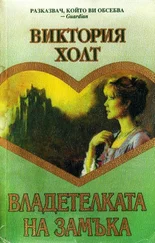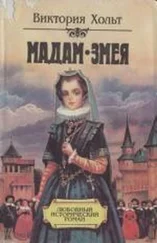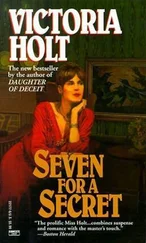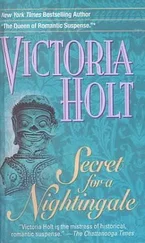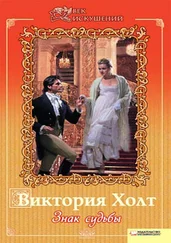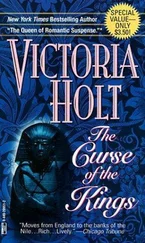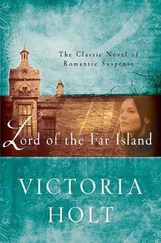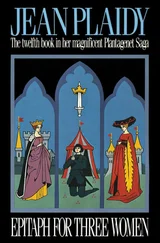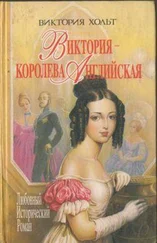He should never have married Isabella. Why had he? Because he was weak; because he had allowed himself to be led.
When Maria of Aragon, Henry’s mother, had died, it had naturally been necessary for John to find a new wife, and he had believed it would be an admirable gesture to ally himself with the French. He had considered marriage with a daughter of the King of France; but his dear friend and adviser, Alvaro de Luna, had thought differently. He had seen advantages to Castile, he said – and to himself, which he did not mention – through an alliance with Portugal.
Poor misguided de Luna! Little did he realise what this marriage was going to mean to him.
The dying John allowed himself to smile as he thought of de Luna in the early days of their friendship. Alvaro had first come to Court as a page – handsome, attractive, he had been a dazzling personality, a skilled diplomat, a graceful courtier, under whose spell John had immediately fallen. He asked nothing more than to stay there, and, in return for the pleasure this man’s company brought him, John had bestowed on him all the honours for which he craved. De Luna had been not only Grand Master of St James but Constable of Castile.
Oh yes, thought John, I was a bad king, for I gave myself completely to pleasure. I had no aptitude for statecraft and, because I was not a stupid man, because I had some intellectual leanings, my behaviour was the more criminal. I have not the excuse of inability to rule; I failed through indolence.
But my father, Henry III, died too young. And there was I, a minor, King of Castile. There was a Regency to rule in my stead. And how well! So well that there was every excuse why I should give myself to pleasure and not concern myself with the government of my country.
But regrettably there had come the day when John was old enough to be King in more than name. And there he had been, young, good-looking, accomplished in the arts, finding that there were so many more interesting things to do than govern a kingdom.
He had been frivolous; he had loved splendour; he had filled his Court with poets and dreamers. He was a dreamer himself. He had been touched perhaps by the Moorish influence of his surroundings. He had lived rather like a Caliph of some Arabic legend. He had sat, with his friends around him, reading poetry; he had staged colourful pageants; he had roamed about the brilliant gardens of his Madrid Alcazar with his tamed Nubian lion for companion.
The splendour of the Palace was notorious; so was the extravagance and frivolity of the King. And side by side with royal extravagance was the hardship and poverty of the people. Taxes had been imposed to provide revenue for favourites; there was misery and privation throughout the land. These were the inevitable results of his misrule and, if the country had been split by civil war and his own son Henry had taken sides against him, he blamed himself, because here on his death-bed he saw more clearly where he had failed.
And always beside him had been his beloved Alvaro de Luna, who, having begun life humbly, could not resist the opportunity to flaunt his possessions, to show his power. He had made himself rich by accepting bribes, and wherever he went he was surrounded by lackeys and trappings of such magnificence that the King’s retinue was put in the shade.
Some said that de Luna dabbled in witchcraft, and it was to this cult that he owed his power over the King. That was untrue, John told himself now. He had admired the brilliant, dashing courtier, this illegitimate son of a noble Aragonese family, because he was possessed of the strong character which John himself lacked.
John was the sort of man who seemed willingly to accept the domination of others. He had been as docile as usual when he agreed to his marriage with Isabella of Portugal.
If that marriage had brought him little peace, it had brought disaster to de Luna, for the bride was a woman of strong character in spite of her latent taint. Or was it that he himself was so weak and feared her outbursts of hysteria?
‘Who,’ she had demanded, ‘is King of Castile, you or de Luna?’
He had reasoned with her; he had explained what good friends he and the Constable had always been.
‘Of course he flatters you,’ she had retorted scornfully. ‘He coaxes you as he would a horse he was riding. But he holds the reins; he decides which way you shall go.’
It was when she was pregnant with Isabella that the real wildness had begun to show itself. It was then that he began to suspect the taint might exist in her blood. Then he had been ready to do anything to calm her in order not to have to face the terrifying fear that he might have introduced madness into the royal bloodstream of Castile.
She had fretted and worked for the disgrace of de Luna, and now he felt bitterly ashamed of the part he had played; he tried to shut this out of his thoughts, but he could not do so. Some perversity in his dying self forced him to face the truth as he had never done before.
He remembered the last time he had seen de Luna; he remembered what friendship he had shown the man, so that poor Alvaro had reassured himself, had told himself that he cared nothing for the enmity of the Queen while the King was his friend.
But he did not save his friend; he loved him still, yet he had allowed him to go to his death.
That, he thought, is the kind of man I am. That action was characteristic of John of Castile. He entertained warm feelings for his friends, but he was too indolent, too much of a coward to save one whom he had loved more than any. He had been afraid of angry scenes, of being forced to face that which he dared not; and so the Queen, balanced very delicately between sanity and insanity, had achieved in a few months what his ministers had plotted for thirty years: the downfall of de Luna.
John felt tears in his eyes as he thought of de Luna’s brave walk to the scaffold. He had heard how gallantly his friend had gone to death.
And up to the moment of de Luna’s execution he, the King, who should have been the most powerful man in Castile, had promised himself that he would save his friend, had longed to quash the sentence of death and bring de Luna back to favour; but he had not done so, for he, who had once been dominated by the charm of de Luna, was now the thrall of the latent madness of his wife.
All I wanted was peace, thought the dying King. All? It was more difficult to find than anything else in turbulent Castile.
* * *
In his tapestried apartment of the Palace, Henry, heir to the throne, was waiting to hear the news of his father’s death.
The people, he knew, were eager to acclaim him. When he rode through the streets they shouted his name; they were tired of the disastrous rule of John II and they longed to welcome a new King who could bring a new way of life to Castile.
As for Henry, he was very eager to feel the crown on his head, and he was determined to keep the popularity which was his. He had no doubt that he could do this, for he was fully aware of his charm. He was good-tempered, easy-going, and he had the art of flattering the people, which never failed to delight them. He could condescend to be one of them without apparent condescension; that was the secret of the people’s love for him.
He was determined to dazzle his subjects. He would raise armies and achieve victories; he would go into battle against the Moors, who for centuries had remained in possession of a large part of Spain. The Moors were perennial enemies, and the proud Castilians could always be brought to a wild enthusiasm by talks of campaigns against them. He would give them pageants to delight their eyes, spectacles and entertainments to make them forget their miseries. His reign should be one of continual excitement and colour.
Читать дальше

